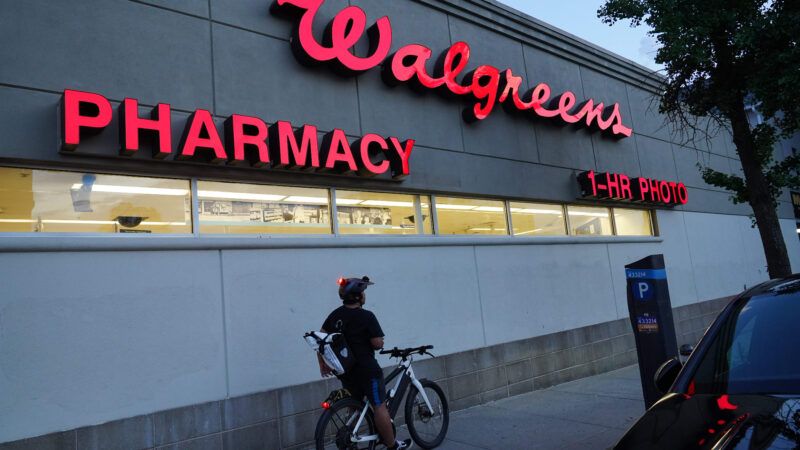Leave Walgreens Alone. They're Doing a Better Job Than the FDA and the CDC.
Yet the company is still getting stupidly scolded by public health busybodies

The Centers for Disease Control and Prevention (CDC) says that the second doses of both the Pfizer/BioNTech and Moderna COVID-19 vaccines can be safely administered up to six weeks after the first dose. To stretch out vaccine supplies in order to protect more people from infection sooner, the United Kingdom in December decided to delay second doses for 12 weeks. Current data indicates that this calculated risk has paid off. Germany is now following the British example. Public health authorities in Canada have lengthened the interval between first and second COVID-19 vaccine doses to four months.
All too predictably, the hypercautious U.S. Food and Drug Administration railed against these changes in vaccine dosing schedules. In fact, the U.S. should have adopted the British strategy of protecting more people faster.
So it's a bit rich that Walgreens is now being chastised for delaying the administration of second doses of the Pfizer vaccine from three weeks to four. "It is not the role of a private, for-profit company to make public health decisions that should be determined by guidelines issued by a public health authority," scolds Lawrence Gostin, a global health law professor at Georgetown University in The New York Times.
The company explained that it had matched the Moderna four-week second dosing schedule by delaying the second dose of the Pfizer vaccine by one week in order to get their vaccine tracking system up and running faster.
So what public health horror did Walgreens perpetrate on its customers? None at all. Consider that the CDC finds that the first doses of the Pfizer and Moderna vaccines are 80 percent effective at preventing COVID-19 infections. The one-dose Johnson & Johnson vaccine is 72 percent effective at preventing mild and moderate disease. Keep in mind that all three are essentially 100 percent effective at preventing hospitalizations and deaths from the virus.
The upshot is that it is likely that fewer of Walgreens' customers would have been vaccinated by now if the company had been forced to wait to roll out vaccines until after its tracking system had been reconfigured.
Finally, if the U.S. had adopted the U.K.'s vaccination scheduling, nearly 170 million Americans could have been protected from the virus by now instead of 108 million.
Disclosure: I have received both doses of the Moderna COVID-19 vaccine.
